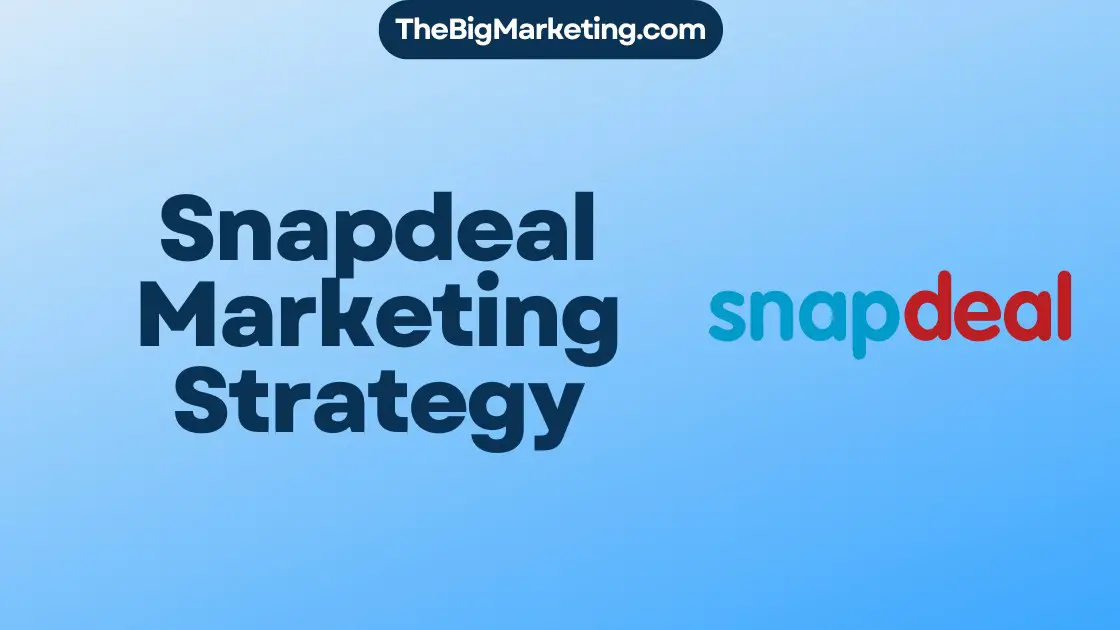Concentrated marketing is a strategy where a brand focuses all its efforts and resources on developing and marketing a product for one specific segment of the target audience. This strategy is particularly effective for small businesses and startups with limited resources, as it allows them to establish a strong position in a specific market segment.
Key Takeaways:
- Concentrated marketing is a strategy that involves focusing all efforts and resources on one specific segment of the target audience.
- It is particularly beneficial for small businesses and startups with limited resources, allowing them to establish a strong position in a specific market segment.
- Some advantages of concentrated marketing include the ability to analyze and understand the needs of a specific segment, cost-effectiveness, and the potential for more loyal customers.
- On the other hand, concentrated marketing has some disadvantages, such as the risk of neglecting other profitable segments and high dependence on customers’ preferences.
- Examples of successful concentrated marketing include Rolls-Royce, Rolex, Munchkin, and Omega, all of which target specific audience segments and tailor their products and marketing efforts accordingly.
Advantages of Concentrated Marketing
Concentrated marketing offers numerous benefits for businesses looking to focus their efforts on specific audience segments. By honing in on a particular segment, brands can gain deeper insights into the needs and preferences of that target market, enabling them to tailor their products and marketing strategies accordingly.
One of the key advantages of concentrated marketing is the opportunity for businesses to become experts in meeting the needs of a specific segment. By specializing in catering to a particular audience, brands can develop a deep understanding of their customers’ pain points and desires, allowing them to create products and experiences that truly resonate.
The Benefits
Another advantage of concentrated marketing is the cost-effectiveness it offers in terms of production and advertising. By focusing resources on a specific segment, businesses can streamline their operational processes and allocate their budgets more efficiently. With targeted production and advertising, brands can optimize their spend and achieve higher returns on investment.
Furthermore, concentrated marketing has the potential to foster more loyal customers. When businesses are able to meet the specific needs and desires of a segment, customers are more likely to develop brand loyalty. By understanding their customers on a deeper level, brands can create personalized experiences that build trust and foster long-term relationships.
In summary, concentrated marketing provides businesses with the ability to analyze and understand the needs of a specific segment, become experts in meeting those needs, achieve cost-effectiveness through targeted production and advertising, and cultivate more loyal customers. By leveraging the benefits of concentrated marketing, businesses can position themselves for success in their target market.
Disadvantages of Concentrated Marketing
While concentrated marketing offers several benefits, it is important to consider its potential disadvantages. By solely focusing on one specific segment of the target audience, businesses face the risk of neglecting other profitable segments, which can hinder their overall growth and revenue potential. This narrow focus limits their reach and may result in missed opportunities to tap into different customer needs and preferences.
Additionally, concentrated marketing strategies heavily rely on the preferences and demands of the chosen segment. If there is a decrease in product demand within that specific segment, the brand may face the potential for failure or a significant decline in sales.
The Importance of Considering Other Profitable Segments
While concentrated marketing allows businesses to establish a strong position in a specific market segment, it is vital to recognize the potential growth opportunities in other segments. Neglecting other profitable segments can limit a brand’s ability to diversify its customer base and capitalize on additional revenue streams.
| Disadvantages of Concentrated Marketing | Impact |
|---|---|
| High dependence on customers’ preferences | Limitation in targeting different customer needs and preferences |
| Risk of neglecting other profitable segments | Missed opportunities for diversification and revenue growth |
| Potential for brand failure with a decrease in product demand within the specific segment | Decline in sales and potential loss of market share |
By carefully considering and incorporating strategies to target multiple segments, businesses can mitigate the risks associated with concentrated marketing while maximizing their growth potential. This could involve conducting market research to identify untapped opportunities, developing personalized marketing campaigns for different segments, and ensuring ongoing analysis and adaptation of strategies to cater to evolving customer needs.
Differentiated Marketing vs Concentrated Marketing
When it comes to marketing strategies, businesses often face the decision between differentiated marketing and concentrated marketing. Each approach offers unique benefits and caters to different objectives.
Differentiated marketing focuses on targeting multiple well-defined segments of the target audience with distinct marketing campaigns. This strategy allows businesses to capture a wider customer base and deliver personalized messaging to each segment. By tailoring their offerings and marketing efforts to specific customer needs, businesses can effectively position themselves in multiple markets and increase their market share.
Concentrated marketing, on the other hand, takes a more focused approach. It revolves around targeting a single, niche segment of the market with a dedicated marketing campaign. By concentrating all resources and efforts on one small segment, businesses can build authority, establish themselves as experts in the niche, and develop tailored solutions to perfectly meet the needs of that specific audience.
While differentiated marketing allows for a wider customer base and personalized messaging, concentrated marketing offers distinct advantages as well. By focusing on one segment, businesses can efficiently allocate resources, hone in on a specific market gap, and position themselves as market leaders in that particular niche. This strategy can lead to increased customer loyalty and a strong competitive advantage.
Example: Differentiated Marketing
Consider a sportswear company that offers both high-end athletic gear for professional athletes and affordable workout attire for fitness enthusiasts. With differentiated marketing, the company would develop separate marketing campaigns targeting each segment. The messaging, advertising channels, and product features would be tailored to the specific needs and preferences of professional athletes and fitness enthusiasts. This approach allows the company to effectively engage and capture the attention of both customer segments, eventually leading to increased sales and brand loyalty.
Example: Concentrated Marketing
Let’s take the example of a gourmet chocolate brand that exclusively targets high-end chocolate connoisseurs. The brand focuses all its resources and marketing efforts on developing and promoting luxury chocolate products for this specific segment. By emphasizing the exclusivity, craftsmanship, and exquisite flavors of their products, they are able to build a loyal customer base and establish themselves as a trusted authority in the gourmet chocolate market.
Both differentiated marketing and concentrated marketing have their merits, and the choice between the two ultimately depends on the business’s objectives, target audience, and available resources. Understanding the differences and benefits of each strategy is essential for businesses to make informed marketing decisions and maximize their market penetration.
Features of Concentrated Marketing
Concentrated marketing is a unique approach often adopted by small companies looking to establish a strong presence in a specific market segment. This strategic tactic involves focusing all efforts on catering to the needs of one specific audience segment. By doing so, businesses can efficiently utilize their resources for production and advertising, ensuring maximum impact and return on investment.
One of the key features of concentrated marketing is the need for expertise in the market. Brands employing this approach must thoroughly understand the dynamics of their chosen segment, including its preferences, behaviors, and pain points. By acquiring in-depth knowledge, companies can position themselves as authorities in the industry, gaining trust and credibility from their target audience.
However, it is important to note that concentrated marketing has its limitations. While it allows businesses to meet the unique needs of a specific segment, it may restrict growth potential in terms of acquiring a larger customer base. Companies employing this approach should carefully evaluate the potential trade-offs between focus and scalability.
Overall, concentrated marketing stands as a valuable tactic to effectively penetrate a specific market segment, provided it aligns with the goals and resources of the business. Companies that successfully implement this approach can develop a strong brand image, build customer loyalty, and optimize their marketing efforts for maximum impact.
Examples of Concentrated Marketing
Successful brands such as Rolls-Royce, Rolex, Munchkin, and Omega have implemented concentrated marketing strategies to great effect. These brands understand the importance of targeting specific audience segments and customizing their products and marketing efforts to meet the unique needs of those segments.
For instance, Rolls-Royce is renowned for targeting high-income individuals who appreciate luxury and exclusivity. Their marketing efforts are designed to appeal to this demographic, emphasizing the craftsmanship, prestige, and status associated with owning a Rolls-Royce vehicle.
Munchkin, on the other hand, focuses on parents of infants and toddlers. Their products are designed to address the specific challenges and needs of this audience, such as baby bottles, sippy cups, and other childcare accessories. Munchkin’s marketing strategy revolves around providing helpful tips, advice, and products tailored to the parenting journey.
Rolex and Omega are known for their concentrated marketing efforts as well. These luxury watch brands target specific customer segments through their marketing campaigns. From featuring influential individuals in their advertisements to highlighting the unique features and craftsmanship of their timepieces, Rolex and Omega capture the attention of watch enthusiasts who value precision, elegance, and exclusivity.
These examples demonstrate how concentrated marketing allows brands to establish a strong presence in specific market segments by aligning their products, messaging, and branding with the needs and desires of their target audience.
Benefits of Concentrated Marketing for Small Businesses
Concentrated marketing offers numerous advantages for small businesses, allowing them to leverage their limited resources and make a significant impact in their target market. By focusing on a specific audience, small businesses can customize their brand messaging, establish themselves as experts in their niche, build customer loyalty, and analyze the effectiveness of their campaigns more efficiently.
Optimization of Limited Resources
One of the key advantages of concentrated marketing for small businesses is the ability to optimize their limited resources. By targeting a specific audience segment, businesses can allocate their budget, time, and efforts towards activities that directly impact their target market. This focused approach ensures that resources are not wasted on reaching uninterested or irrelevant audiences, resulting in a higher return on investment.
Customization for a Specific Audience
Concentrated marketing allows small businesses to tailor their brand and messaging to a specific audience. By understanding the unique needs and preferences of their target market, businesses can create personalized experiences that resonate with their customers. This customization builds trust, loyalty, and a stronger connection with the audience, leading to increased customer satisfaction and repeat business.
Establishing Expertise in a Niche
By concentrating their marketing efforts on a specific audience segment, small businesses can position themselves as experts in their niche. By consistently delivering value and expertise to their target market, businesses can gain credibility and trust from their customers. This expertise not only attracts more customers, but it also leads to increased brand recognition and a competitive advantage within the industry.
Building Customer Loyalty
Concentrated marketing allows small businesses to build stronger relationships and customer loyalty. By focusing on meeting the specific needs of their target audience, businesses can create products, services, and experiences that truly resonate with their customers. This personalized approach fosters a sense of loyalty and connection, leading to repeat purchases, positive word-of-mouth referrals, and long-term customer relationships.
Efficient Campaign and Strategy Analysis
With concentrated marketing, small businesses can analyze the effectiveness of their campaigns and strategies more efficiently. By targeting a specific audience, businesses can gather data and insights that are specific to their niche. This focused analysis allows businesses to make data-driven decisions, refine their marketing tactics, and improve overall campaign performance. The ability to track and measure key metrics enables small businesses to continuously optimize their strategies and drive better results.
| Advantages of Concentrated Marketing for Small Businesses |
|---|
| Optimization of limited resources |
| Customization for a specific audience |
| Establishing expertise in a niche |
| Building customer loyalty |
| Efficient campaign and strategy analysis |
Use Cases of Concentrated Marketing
Concentrated marketing offers a range of use cases that businesses can leverage to achieve their goals. Whether as a stepping stone for growth or a long-term strategy, this approach is particularly valuable for small businesses, startups, and SaaS startups targeting specific market gaps and niche audiences.
One of the primary use cases for concentrated marketing is to establish a strong foundation for business growth. By focusing on a well-defined target audience or local clientele, businesses can effectively position themselves as experts in their niche and build a loyal customer base. This concentrated approach enables companies to optimize their resources and refine their marketing strategies to meet the unique needs and preferences of their target segment.
Another use case for concentrated marketing is in launching new products or services. By adopting a concentrated marketing strategy, businesses can target a specific market segment and tailor their messaging and offerings to appeal directly to that audience. This targeted approach allows for more focused and effective marketing campaigns, resulting in higher customer engagement and conversion rates.
In addition, concentrated marketing can be a valuable tactic for businesses entering a new market or expanding into a different geographical location. By understanding the specific needs and preferences of the target audience in that region, companies can tailor their products, messaging, and marketing efforts to resonate with local customers. This concentrated approach increases the chances of success by effectively capturing the attention and interest of the target market.
Furthermore, concentrated marketing is an advantageous strategy for businesses operating in niche industries or offering specialized products or services. By honing in on a specific market segment, companies can position themselves as industry experts and become the go-to brand for customers within that niche. This expertise and authority help build trust and credibility, enabling businesses to secure a loyal customer base and achieve sustainable growth.
Example: An example of a successful concentrated marketing strategy is found in the fashion industry. Luxury brand Louis Vuitton has employed a concentrated marketing approach, targeting high-net-worth individuals with its premium products. By focusing on this specific segment and consistently delivering high-quality and exclusive products, Louis Vuitton has established itself as a leading luxury fashion brand.
Use Cases of Concentrated Marketing
| Use Cases | Benefits |
|---|---|
| Stepping stone for growth | Establishes expertise and builds a loyal customer base |
| Launching new products | Allows for targeted messaging and higher customer engagement |
| Entering new markets | Enables customization for specific audience preferences |
| Niche industries | Positions as an industry expert and builds trust |
How to Implement a Concentrated Marketing Strategy
Implementing a concentrated marketing strategy requires a systematic approach and a deep understanding of your target audience segment. By following these key tactics, you can effectively implement a concentrated marketing strategy and maximize your business’s potential.
1. Thorough Research and Audience Identification
Start by conducting thorough research to identify the specific segment of your target audience that you want to focus on. This involves analyzing demographic data, market trends, and consumer behavior patterns. Once you have identified your target audience segment, create buyer personas that represent your ideal customers. These personas will guide your marketing efforts and help you tailor your messaging to their specific needs and preferences.
2. Identify Customer Touchpoints
Next, identify where your target customers are most likely to interact with your brand. This may include social media platforms, industry forums, trade shows, or specific websites. By understanding your customers’ preferred touchpoints, you can strategically position your marketing content to reach them effectively.
3. Tailor Your Content Marketing Plan
Create a content marketing plan that is tailored to your target audience segment. Develop engaging and informative content that resonates with their needs and interests. This may include blog articles, videos, podcasts, infographics, and social media posts. The goal is to deliver valuable content that establishes your brand as an authority in the niche market and builds trust with your target customers.
4. Plan and Execute Your Marketing Strategy
Create a comprehensive marketing strategy that outlines your goals, tactics, and key performance indicators. Determine the marketing channels and tools that will best reach your target audience segment and allocate your resources accordingly. Execute your marketing initiatives consistently and monitor their performance to make informed data-driven decisions.
5. Continuously Monitor and Modify Your Strategy
Regularly track and measure the effectiveness of your marketing efforts. Monitor key metrics such as website traffic, engagement rates, conversion rates, and customer feedback. Use this data to analyze the success of your strategy and identify areas for improvement. Make necessary modifications to your strategy based on customer behavior and market trends to ensure the ongoing success of your concentrated marketing efforts.
By implementing these tactics, you can successfully implement a concentrated marketing strategy and unlock the full potential of your target audience segment. Remember to stay agile and adaptable, continuously refine your approach, and strive for a deep understanding of your customers’ needs and preferences.
Success Stories of Concentrated Marketing
When it comes to successful concentrated marketing strategies, several brands stand out as prime examples. These brands have effectively implemented concentrated marketing tactics to target specific audience segments and achieve remarkable success in their respective markets.
Rolls-Royce
Rolls-Royce, renowned for its luxury automobiles, exemplifies the power of concentrated marketing. The brand specifically targets high-income individuals who value exclusivity and craftsmanship. Rolls-Royce’s personalized marketing approach, such as sending handwritten letters to potential customers, allows them to establish a strong emotional connection and cater to the unique desires of their target audience.
Munchkin
Munchkin, a leading baby product brand, has successfully implemented a concentrated marketing strategy to target parents. Through their blog, Munchkin provides valuable parenting tips and resources, effectively building trust and positioning themselves as experts in the field. Additionally, Munchkin offers a range of products tailored to the specific needs and preferences of parents, further solidifying their position as a go-to brand for infant and toddler care.
Rolex and Omega
Both Rolex and Omega have mastered the art of concentrated marketing by targeting specific customer segments through their marketing campaigns featuring influential individuals. These luxury watch brands strategically choose brand ambassadors who resonate with their target audience and embody the values associated with their products. By leveraging the influence and reputation of these ambassadors, Rolex and Omega effectively capture the attention and loyalty of their desired customer segments.
| Brand | Target Audience | Marketing Approach |
|---|---|---|
| Rolls-Royce | High-income individuals | Personalized letters, exclusivity |
| Munchkin | Parents | Parenting blog, tailored products |
| Rolex and Omega | Luxury watch enthusiasts | Influential brand ambassadors |
These success stories demonstrate the effectiveness of concentrated marketing when implemented strategically and tailored to the specific needs and preferences of a target audience. By understanding their audience, customizing their messaging, and leveraging unique marketing approaches, these brands have achieved significant market success and built strong customer loyalty.
Conclusion
In conclusion, targeted marketing strategies play a crucial role in the success of businesses by allowing them to focus their efforts on a specific audience segment. Concentrated marketing is one such strategy that offers numerous advantages for businesses seeking to optimize their resources, customize brand messaging, position themselves as experts, foster customer loyalty, and analyze campaign effectiveness efficiently.
By implementing a concentrated marketing strategy, businesses can drive growth and achieve success in their target market. However, it is essential to carefully consider the potential disadvantages, such as the risk of neglecting other profitable segments, and monitor the market dynamics closely to ensure continued relevance and profitability.
Overall, targeted marketing strategies, including concentrated marketing, should be approached strategically and adapted to the unique needs and goals of each business. By understanding and catering to the specific needs of a well-defined audience, businesses can establish a strong market position, build brand loyalty, and achieve sustainable growth.
Recommended Reading:
- The complete guide to targeted marketing strategies
- Maximizing ROI through concentrated marketing
- Tips for effective implementation of targeted marketing strategies
- Case studies of successful concentrated marketing campaigns
| Advantages of Concentrated Marketing | Disadvantages of Concentrated Marketing |
|---|---|
| Resource optimization | High dependence on specific customer preferences |
| Customization of brand messaging | Risk of neglecting other profitable segments |
| Positioning as an expert in a niche market | Potential for brand failure if demand decreases |
| Development of customer loyalty | |
| Efficient analysis of campaign effectiveness |
Conclusion
Targeted marketing strategies, such as concentrated marketing, provide businesses with a powerful approach to reaching their desired audience. By prioritizing a specific segment, businesses can optimize resources, tailor brand messaging, position themselves as industry experts, cultivate customer loyalty, and efficiently analyze campaign outcomes. Implementing a concentrated marketing strategy enables businesses to drive growth and achieve success in their target market.
Concentrated marketing offers numerous benefits for small businesses, startups, and those targeting niche markets. It allows businesses to optimize limited resources, create personalized brand experiences for their target audience, establish their authority within a specific market segment, and build long-lasting customer relationships. Additionally, concentrated marketing enables businesses to evaluate the effectiveness of their campaigns and make data-driven adjustments to achieve better results.
Successful examples of concentrated marketing can be found in brands like Rolls-Royce, Munchkin, Rolex, and Omega. These companies have mastered the art of understanding and catering to the specific needs of their target audience, resulting in strong brand presence, customer loyalty, and sustainable growth. By studying and emulating these success stories, businesses can gain valuable insights into the implementation of concentrated marketing strategies.
In today’s competitive business landscape, targeted marketing strategies like concentrated marketing are essential for businesses aiming to stand out and thrive. By harnessing the power of customer segmentation and customization, businesses can create impactful marketing initiatives that resonate with their intended audience, drive customer engagement, and propel their growth forward.



